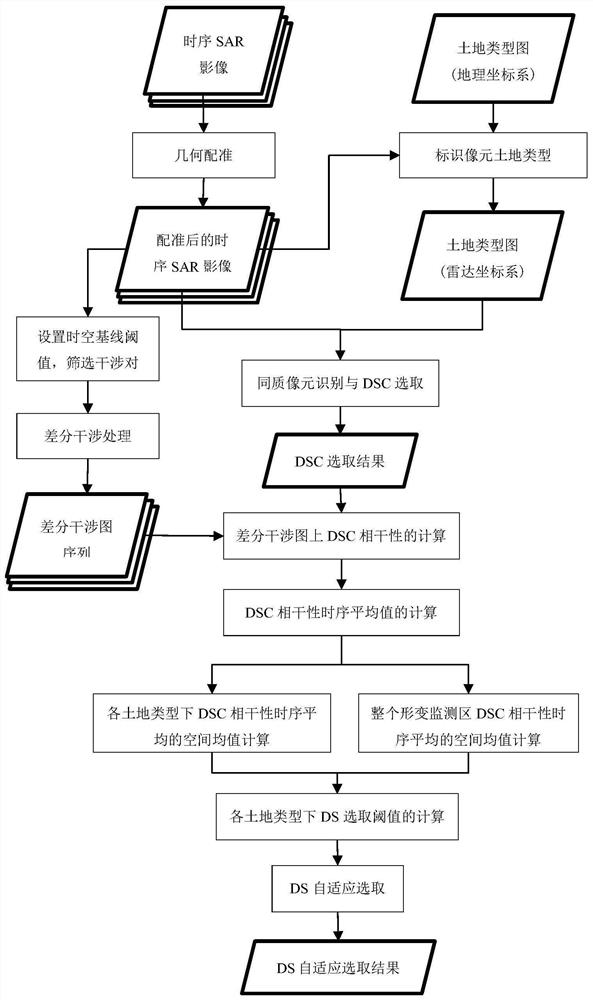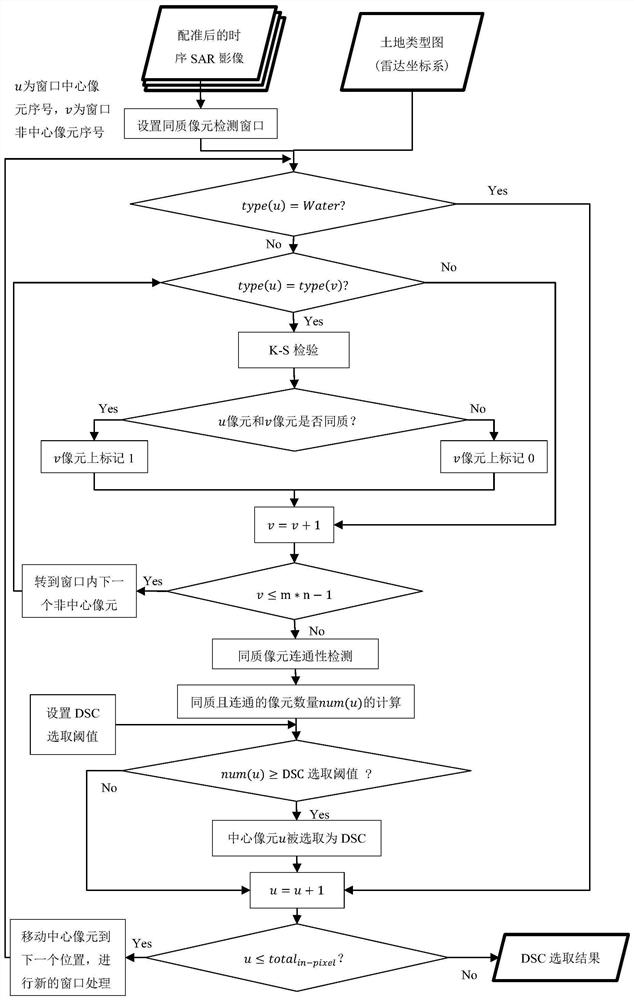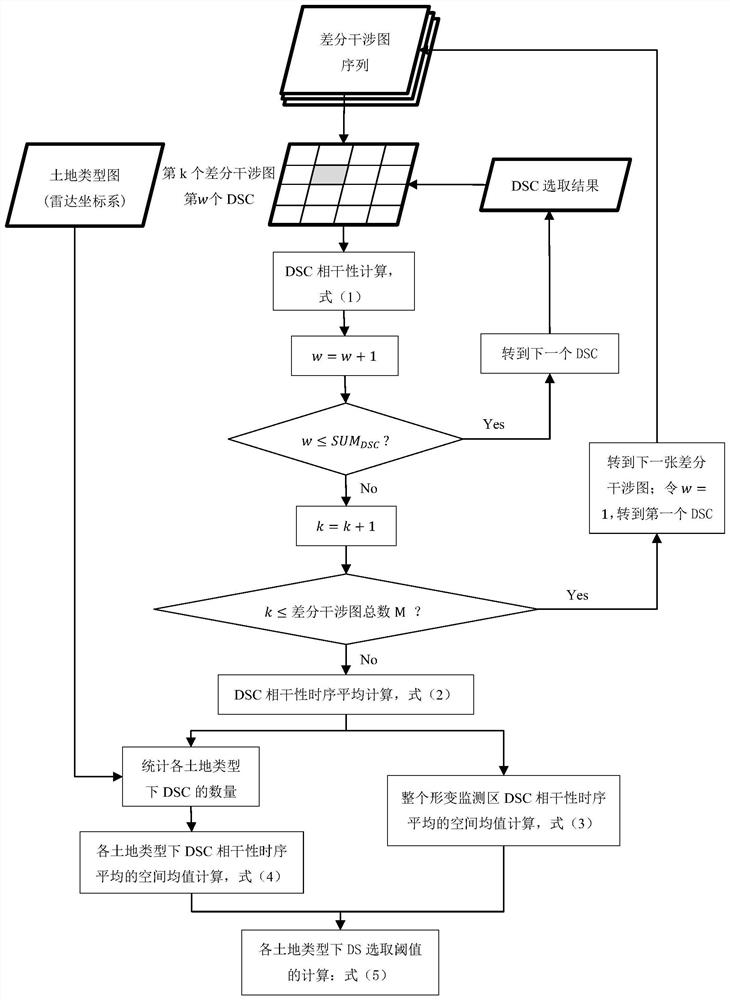DS self-adaptive selection method in InSAR time sequence analysis based on land type
A timing analysis and self-adaptive technology, applied in the direction of reflection/re-radiation of radio waves, instruments, measuring devices, etc., can solve the problem of reducing the accuracy of DS, increasing the time cost and computational burden, not considering the natural properties of DS or utilization status, etc. problems, to achieve the effect of improving the selection quality, improving the recognition efficiency, and narrowing the search range
- Summary
- Abstract
- Description
- Claims
- Application Information
AI Technical Summary
Problems solved by technology
Method used
Image
Examples
Embodiment Construction
[0052] Specific embodiments of the present invention will be described in detail below in conjunction with the accompanying drawings.
[0053] The present invention provides a new method for adaptive selection of distributed scatterers based on land cover / land use type (hereinafter referred to as land type), using land cover type map or land use type map (land type map) as the distribution of deformation monitoring areas According to the constraint conditions of DS selection, according to different land types, the selection threshold of DS under different land types is automatically calculated, and the adaptive selection of DS is realized.
[0054] figure 1 Shown is the flow process of the DS adaptive selection method based on the land type provided by the present invention, which specifically includes the following steps:
[0055] 1) Land type identification of SAR image pixel in radar coordinate system
[0056] Convert the land type map in the geographic coordinate system ...
PUM
 Login to View More
Login to View More Abstract
Description
Claims
Application Information
 Login to View More
Login to View More - R&D
- Intellectual Property
- Life Sciences
- Materials
- Tech Scout
- Unparalleled Data Quality
- Higher Quality Content
- 60% Fewer Hallucinations
Browse by: Latest US Patents, China's latest patents, Technical Efficacy Thesaurus, Application Domain, Technology Topic, Popular Technical Reports.
© 2025 PatSnap. All rights reserved.Legal|Privacy policy|Modern Slavery Act Transparency Statement|Sitemap|About US| Contact US: help@patsnap.com



